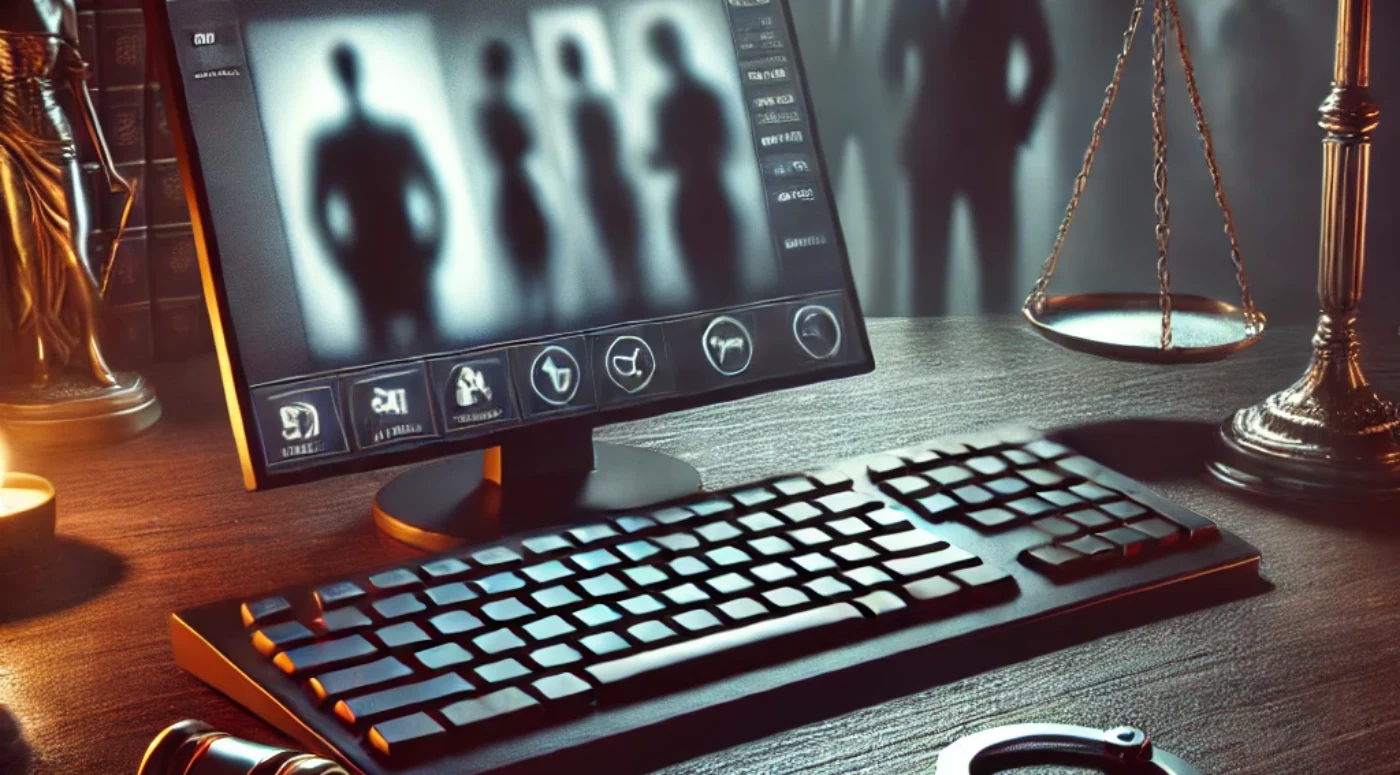

According to the most recent data available, there were thousands of offences involving indecent images reported in the UK, highlighting the seriousness and complexity of these cases. If you find yourself arrested or charged with possession of indecent images, it is vital to engage the services of a criminal defence solicitor as early as possible to guide you through the legal process. In this article, we will address common queries such as whether you need legal representation, what possible defences might be available, and the likelihood of being granted bail.
Do I need a solicitor for possession of indecent images?
Possession of indecent images is a serious matter in the UK, mostly governed by the Criminal Justice Act 1988 and the Protection of Children Act 1978. Legal representation is absolutely essential for several reasons:
- Expert advice: A solicitor can guide you through the legal process, explaining the charges, potential defences, and the likely outcomes.
- Evidence handling: They will scrutinise the evidence against you, challenge any discrepancies, and ensure that all evidence was obtained legally.
- Negotiations: A solicitor can negotiate with the prosecution for reduced charges or alternative sentences where appropriate.
- Court representation: Having an experienced solicitor represent you in court will ensure your case is presented clearly and effectively, increasing the likelihood of a favourable outcome.
- Emotional support: Legal proceedings can be stressful and having a professional on your side can provide some relief, knowing you are not facing the charges alone.
What are possible defences for possession of indecent images?
One potential defence is lack of knowledge. For a conviction, the prosecution must establish that you knowingly possessed the images in question. If you were unaware of the existence of these images on your device, perhaps due to someone else downloading them without your knowledge, it may serve as a robust defence.
Another defence could be a lack of control, where you did not have the control over the area where the images were found. For example, if your device was hacked or involuntarily accessed by another person, it might be argued that you did not have the requisite control over the images.
Mistake of fact is another potential defence. This can apply if you had a genuine belief that the images were not indecent, perhaps because they were inadvertently downloaded from a seemingly legitimate source. It is important to note, however, that this defence is limited and may require substantial evidence to support the claim.
If you can prove you had a legitimate reason for possessing the images, such as for law enforcement purposes or journalistic investigation, this could also serve as a defence. In these instances, context and the nature of your work will be critical in establishing your stance.
Additionally, issues surrounding the procedural handling of evidence may serve as a defence. If the prosecution’s case relies on improperly obtained evidence, your solicitor might challenge its validity in court, seeking to exclude it from the proceedings.
Will I get bail for possession of indecent images?
When deciding whether to grant bail, a magistrates’ court or a police officer will consider various factors. Bail is typically granted unless there are substantial reasons to refuse it. Here are some of the key considerations:
- Nature and seriousness of the offence: The justice system takes allegations of possessing indecent images very seriously, especially when considering the broader societal impact. However, the specific circumstances of the case, such as the volume and category of images, can influence the decision.
- Past criminal record: If you have previous convictions, particularly those related to similar offences, this could affect your ability to receive bail. A clean record, however, might weigh in your favour.
- Flight risk: The court will assess whether there is a risk that you might abscond to avoid facing trial. Strong ties to the community, such as a stable job or family commitments, can help demonstrate that you are not a flight risk.
- Risk of committing further offences: If there is a concern that you might continue to engage in similar conduct whilst on bail, this could lead to a refusal. However, conditions such as restrictions on internet access may be imposed to mitigate this risk.
Will I have to go to court if I’m arrested or charged for possession of indecent images?
Whether you will have to go to court depends on several factors, including the specifics of your case and the decisions made by the Crown Prosecution Service (CPS).
Firstly, the nature of the possession charge can influence whether a case is more likely to be taken to court. Indecent images are classified under three categories based on their severity. The more severe the category of images, the more likely the case will be taken to court given the potential penalties involved.
If you are charged with possession, the police and the CPS will assess the evidence to determine whether it meets the criteria for prosecution, i.e. whether there is enough evidence for a realistic prospect of conviction and whether a prosecution is in the public interest. If these criteria are met, it is likely that the case will go to court.
In many instances, cases involving indecent images are initially heard in a Magistrates’ Court. However, depending on the severity of the allegations and the decisions of the court, the case may be escalated to the Crown Court. This is often the case if the charges are particularly serious and the potential sentences exceed the Magistrates’ Court’s limited sentencing powers.
For individuals facing these charges, it is possible to enter a guilty plea, which might mitigate the need for a trial. Consult a solicitor on this prior to making any decisions.
Will I go to jail if found guilty of possession of indecent images?
The maximum sentence for possession of indecent images can result in up to 10 years in prison, particularly if the images are categorised as the most severe. That said, not every conviction leads to a custodial sentence. Courts have discretion and will carefully consider several aspects before deciding on a penalty. These considerations include:
- The category of the images: Indecent images are classified into three categories, A, B, and C, with A being the most serious. The nature and volume of the material in your possession will significantly impact the potential sentence.
- Previous criminal record: If you have a prior history of similar or other criminal offences, this might influence the court’s decision towards a harsher sentence.
- Personal circumstances: Mitigating factors, such as personal circumstances and evidence of rehabilitation efforts, can impact the final decision. Courts are inclined to consider whether the individual is a risk to the public or if there is potential for rehabilitation.
- Early plea and cooperation: Demonstrating remorse, cooperating with authorities, and entering an early guilty plea can potentially reduce the severity of the sentence you might face.
In some cases, the court may consider alternatives to imprisonment, such as community orders, fines, or rehabilitation.
Will I go to jail if it’s my first offence of possession of indecent images?
Possession of indecent images is categorised into different levels of severity, ranging from Category A, involving the most serious images, to Category C, involving less severe images. The category under which your offence falls will significantly impact the likely sentence. This is the case regardless of whether it is your first offence.
For a first-time offence just like a repeat offence, the court may consider factors such as whether the images were accessed accidentally or systematically, the number of images possessed, and the level of involvement with the distribution of these images. Other considerations might include the age of the individuals depicted in these images and any previous criminal history you may have.
The fact that something is your first offence can lessen the severity of any punishment you will face, but it often will not mitigate it completely.
Can I get Legal Aid for possession of indecent images?
Eligibility for Legal Aid in criminal cases, including those involving possession of indecent images, primarily depends on two main tests: the means test and the merits test.
- The means test evaluates your financial situation to determine if you qualify for assistance. Factors considered include your income, savings, and overall financial circumstances. If your income is below a certain threshold, or if you are receiving specific benefits, you might automatically qualify for Legal Aid. Those with higher incomes may not be eligible or may have to make contributions towards their legal costs.
- The merits test assesses the seriousness of the case and whether it is in the public interest or necessary for you to have professional representation. Cases of possession of indecent images often meet these requirements easily.
Where to get more help
Having a knowledgeable and experienced criminal defence solicitor by your side to guide you through each step of the criminal justice process and provide the best possible defence is key to your defence. Stuart Miller Solicitors are committed to safeguarding your rights and offering the expert support you need in these challenging times. For a free consultation, contact us today.
OUR COMMITMENTS TO YOU:
-
Responsive
A legal expert will consult you within 24 hours of making an enquiry.
-
Empathetic
We will always treat you with trust, understanding and respect.
-
Specialised
Your case will be handled by an expert who specialises in your type of offence.
-
Proactive
We will take early action to end proceedings as soon as it is practically and legally possible to do so.
-
Engaged
You will be kept updated on your case at all times. We will provide a named contact available to answer your questions.
-
Caring
We understand this is a difficult and stressful time for you and your family. Our team will support you every step of the way.
-
Tenacious
We will never give up on your case. We fight tirelessly to get you the best possible outcome.
